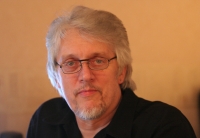 Here’s part 2 of my initial lit.review, which sets out a simple structure and includes references to attempts to define ‘folk’. This was necessarily brief; the word length of the assignment prevented a more detailed discussion.
Here’s part 2 of my initial lit.review, which sets out a simple structure and includes references to attempts to define ‘folk’. This was necessarily brief; the word length of the assignment prevented a more detailed discussion. I have since read a slightly tongue-in-cheek definition that nevertheless highlights the discursive differences that this research seeks to address, i.e. between folk practitioners and the popular music media. It was provided by Stuart Maconie in a Radio Times article about the Cambridge Folk Festival:
Cambridge's definition of folk is dizzyingly broad; basically it means anything not likely to appear on Chris Moyles' show...…/…
Literature search strategy and aims
My research focuses less on form and more on practices. However, to provide a context of current understandings and debates on folk music in the UK, this paper highlights literature that has delineated academic understanding of both forms and practices of folk music for much of the 20th century (particularly the latter half). It also considers literature on ‘popular’ music, in the specific sense of music produced by cultural industries to manipulate audience tastes and choices.
Debates on the definition of ‘folk’ music provide a starting point. I shall then consider texts that characterise three approaches to the study of folk:
(1) as ‘folklore’ and expressions of social history;
(2) as a musical style and genre, and
(3) as means of expressing cultural identity.
Some sources that fall within the second category also highlight the position occupied by folk as a commodified form within the practices of contemporary music industry. Other texts, which historically may have adopted the ‘folk as folklore’ perspective, relate to the third category of this review through their insights into the sociology of participation in folk music.
Defining ‘folk’ music
Shuker cites the Music Central CD-ROM’s description of folk as ‘…simple, direct, acoustic-based music that draws upon experiences, concerns, and lore of the common people’ (Shuker 2002:134). Inevitable issues of taxonomy arise from his discussion of ‘folk culture’; the term ‘folk’ may encompass a variety of categories including world music, roots music, protest songs, songs identified by their regional origins and the output of contemporary singer songwriters.
Frith seeks to explain difficulties in defining folk through ‘a history of the struggle among folk collectors to claim folk meaning for themselves' (Frith 1988: 113). Attempts by folk musicians to define their art highlight McLean’s view of folk as ‘something of an elastic classification’ (McLean 1996). She cites an interview response by one English folk musician, Seth Lakeman which reflects the view of folk as:
the people's music … That's evident in how many folk music festivals exist. Cambridge is the biggest - I think 15,000 go to it - but there are so many others that are attended by 3,000 or 4,000 people(See also my earlier post)
Debates on the concept of ‘folk music’ reflect differing allegiances to historical movements and manifestations of vernacular and acoustic music. Pegg* (2007) summarises and contrasts the influences of ‘folk music revivals’ in Europe and the United States, which have established frameworks for understanding the concept but also for division on the authenticity of music that claims to be ‘folk’. She points to the American Folk Revival as one major influence, which:
…came out of the social and economic setting of the 1940s in which many young people believed that the parent generation had gravely mismanaged the world. Figures such as Pete, Mike and Peggy Seeger, and Alan Lomax, promoted engagement by college students and intellectuals in the ideas of populist folksong.
(Pegg 2007 online*)
In contrast, she alludes to two British folk revivals, the first dating back to the collections of middle-class enthusiasts, especially Francis James Child (1825-96) and advocate for an early 20th century folk revival, Cecil Sharp (1859-1924). The second, reflecting post-World War II socialist and Marxist movements, was instigated by such figures as singer and songwriter, Ewan McColl (1915-89) and song collector A.L.Lloyd (1908-82).**
Pegg identifies a subsequent distinction made by participants between ‘traditional’ and ‘contemporary’ folk music manifested through different styles of folk club, which ‘began to develop “traditions” of their own’ (Pegg op cit*). The former incorporated ‘vocal techniques and mannerisms considered to be intrinsic to a “traditional” style, such as singing nasally with the hand cupped over one ear…’; the latter reflected the influence of new acoustic guitar techniques, epitomised by Martin Carthy: ‘sensitive finger-picking and open-string tunings that enabled drones to be produced’ (ibid).
* These links only work if you are a signed-up subscriber to Grove Music Online
** For more detailed examination of their influences and the emergence of folk as working class cultural expression, see Long (2001: 96-141) and Brocken (2003: 25-42)
literature review folk music folk music definition Stuart Maconie
Cambridge Folk Festival Chris Moyles popular music Roy Shuker
folk culture Simon Frith Guardian Seth Lakeman folk revival American folk revival Pete Seeger Alan Lomax Francis James Child Cecil Sharp
Ewan McColl A.L.Lloyd folk clubs Martin Carthy

